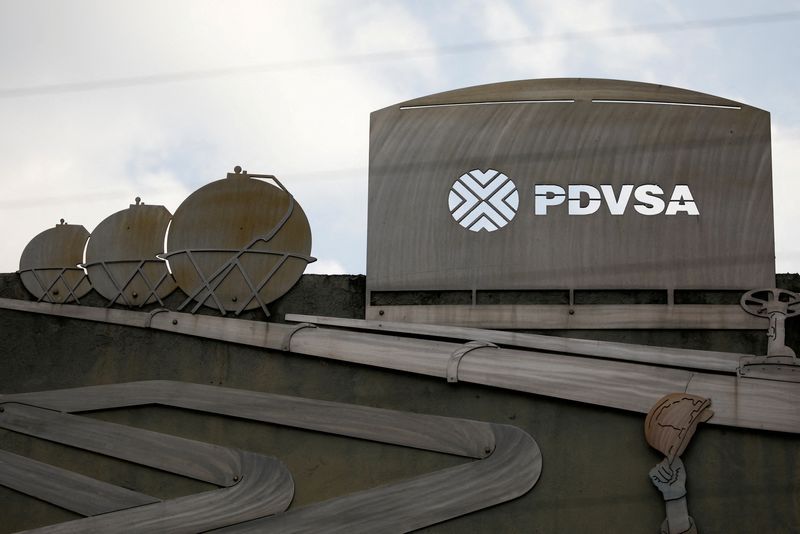By Mayela Armas
CARACAS (Reuters) - Venezuela's government foresees a 27% increase in its income from state-run oil company PDVSA next year, according to a document seen by Reuters, after a relaxation in U.S. sanctions and amid planned presidential elections and stagnant production.
The administration of President Nicolas Maduro estimates that its total spending next year will be equivalent to $20.5 billion, according to an unpublished 2024 budget proposal.
The budget, which would mark a 39% increase on 2023 spending, will be debated in the ruling party-allied legislature and is likely to be approved.
Sanctions relief, which is set to last until April unless the U.S. backtracks, has increased prices for Venezuelan crude and analysts expect the income to lead to more social spending as the government tries to ensure support in the presidential vote, where Maduro is expected to run again.
Income from oil exports and taxes paid by state-owned oil company PDVSA would cover 58% of total government spending, equivalent to some $11.9 billion, according to the document. PDVSA's contributions this year were $9.34 billion.
The increase in PDVSA contributions to the budget does not represent the total by which the oil company's income could rise, because part of its income is held in other funds, about which there is little information.
The budget, which uses an exchange rate calculated by the central bank, does not include a price estimate for crude nor production estimates for next year.
Neither the communications ministry nor PDVSA responded immediately to requests for comment.
The U.S. eased sanctions in October after Maduro's government inked a deal on presidential elections with the opposition, but the Biden administration has said it is weighing reinstating them because the government failed to free political prisoners and "wrongfully detained" Americans by a November deadline.
Oil income has previously been battered by low production due to deteriorated infrastructure and lack of investment.
Output averaged 800,000 barrels per day this year, according to OPEC.
Tax income will be the equivalent of $5.54 billion and finance 27% of spending, the document said. The remainder of the budget will be financed with internal debt and loans, it added.

Though the proposal says that in 2024 "policies will be designed to protect the people from speculation and inflation", it gave no details of the efforts and includes neither inflation nor economic growth targets.
Though Maduro's administration has sought to curb inflation through lower spending, credit limitation and exchange rate controls, 12-month consumer prices growth was 282.7% through November.